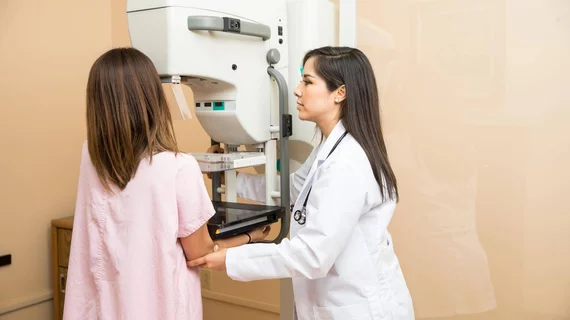States move breast cancer screening bills forward
In Connecticut, the Senate is presenting a bill that would change the age at which insurance carriers are required to cover baseline mammographic screenings.
Senate Bill 358, which is set to be heard by the Joint Committee on Insurance and Real Estate, would lower the coverage eligibility age for baseline mammogram screening to 35-39 years old, and annual mammograms thereafter for women aged 40 and older.
The bill would also require carriers to cover yearly mammograms for women age 40 and younger who are considered to be at an increased risk of developing breast cancer during their lifetime. These guidelines include women who have a family history of breast cancer, have tested positive for BRCA1 or BRCA2 (or other variants that can increase cancer risk) or were treated for cancer with radiation therapy directed at the chest during childhood.
If women fall under any of these categories, or if they have dense breast tissue, carriers would be required to cover screening and diagnostic ultrasounds as well. The bill would also update language in the current statute that would guarantee coverage of breast tomosynthesis for women at high risk, which is especially important for women with dense breast tissue, as DBT screenings have been shown to increase cancer detection rates among those individuals.
The proposed act would take effect Jan. 1, 2023.
A similar bill in Oklahoma just passed the House of Representatives. House Bill 3504 would require carriers to cover diagnostic mammography, which would include breast MRI and ultrasound, and would also update language to include tomosynthesis in the definition of screening mammography.
The American Cancer Society’s guidelines recommend women with an average risk of breast cancer start getting annual screenings at the age of 45 (though they have the option to begin screenings starting at 40). Based on individual risk factors, they recommend women at high risk begin getting mammographic screening in addition to a breast MRI every year starting usually around age 30.
More on breast imaging:
Mayo Clinic offers new guidance on supplemental screening of women with dense breasts
Routine mammograms offer insight into women's risk of cardiovascular disease
New AI tool accurately classifies breast density
Q&A: Should COVID vaccinated patients delay getting breast imaging — new study says no

